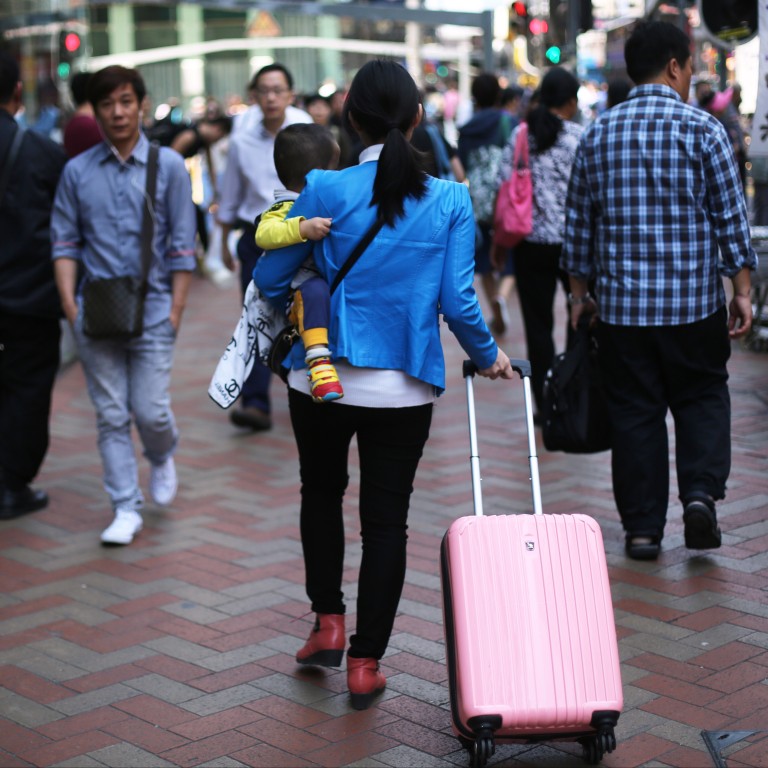
Heavy reliance on the mainland for tourists, water and energy undermines Hong Kong sustainability
Stephen Tong says tourism, energy and water policies in Hong Kong that foster self-sufficiency will be good for the economy and the environment
While it is important to factor in regional considerations when making policies, Hong Kong's self-sufficiency is fundamental to its governance. Three recent examples show how more self-sufficiency will result in a more sustainable environment, both locally and regionally.
Firstly, in the past two months, there have been a number of heated protests against mainlanders arriving on the individual visit scheme. A survey by the Hong Kong Institute of Asia-Pacific Studies from the Chinese University of Hong Kong showed that while 54.8 per cent of respondents disagreed with the protests, two-thirds agreed that Hong Kong could not handle that many visitors.
Not only has Hong Kong's heavy reliance on visitor spending created inconvenience for Hong Kong residents, it has reshaped the local retail environment for the worse. reported that there were 494 drug stores in the Yau Tsim Mong district, which works out to one for every 638 residents.
Chief Executive Leung Chun-ying voiced this concern at the National People's Congress meeting but Shenzhen and Guangdong officials spoke against the idea of putting limits on the scheme, before finally agreeing to cap the number of visits allowed by Shenzhen residents to one per week. Hopefully, this will result in a better balance between local and regional interests.
Secondly, in the public consultation about the future fuel mix for electricity generation, which ended last June, both options presented by the government involved Hong Kong relying heavily on the mainland one way or another. The first option was to import electricity from the mainland power grid, while the second involved local electricity generation from natural gas supplied from the mainland.
Although Hong Kong could reduce its carbon emissions by a significant amount on paper, we would actually be meeting that target by outsourcing the problem to others, as Guangdong continues to industrialise and the demand for energy is great.
Thirdly, Hong Kong relies on the Dongjiang for almost 80 per cent of its fresh water supply. We signed a new agreement with Guangdong recently, but there are growing challenges to the Dongjiang's water quantity and quality.
Climate change is causing rainfall in the Pearl River Basin to become more variable while industries are relocating to areas near the water source. The water consumption of upstream Guangdong cities such as Heyuan , Huizhou and Dongguan , not to mention Shenzhen, is increasing and will exceed supply soon. Water shortages are widely expected.
By paying our way out, we are not only making ourselves vulnerable to external factors, but we are intensifying the fight over limited resources in the region. If we can strive to use more locally generated water and energy, we would not only be taking care of ourselves, but also helping the region by leaving more resources for others.
Additionally, reducing reliance on parallel trading would result in a more diversified local economy, which would be more sustainable in the long run. A responsible government should take care of its people and not be a burden on others.
